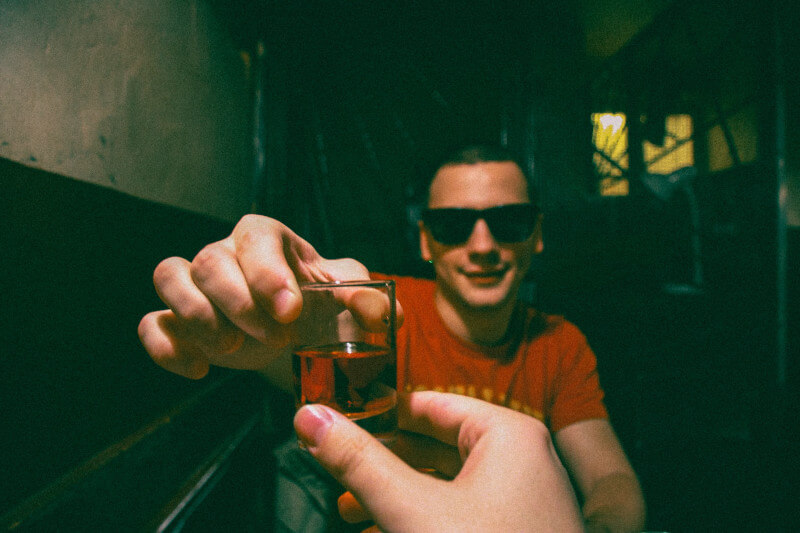Vending machines have evolved. From the days when we were excited to drop a coin for a can of soda or a packet of gum, the scope of what we can get from these automated dispensers has grown remarkably. One of the newest entrants in this world is the alcoholic vending machine. But the question remains: Is this an ephemeral trend or a lasting evolution in the way we consume spirits?
Since the late 19th century, vending machines have been a part of our urban infrastructure, doling out everything from stamps to French fries. Recently, the vending machine took another evolutionary step by entering our favorite bars, offering everything from wine and beer to sophisticated cocktails. The sight of these machines has caused both admiration and skepticism. So, what’s driving this trend?
The Historical Context
It’s essential to note that while the idea may seem novel to some, alcohol vending machines didn’t pop up overnight. Connecticut, for instance, had legal restrictions against self-pouring technology, which only shifted in 2016 following legislation championed by state representative David Arconti. The move witnessed widespread approval, reflecting a shift in perceptions about self-service alcohol systems.
New York City barman, Don Lee, brought an inventive approach to this concept. Repurposing two soda fountains from the 1960s, Lee began offering premade alcoholic beverages at his Greenwich Village establishment, Existing Conditions. Designed as an interim pleasure while customers waited for bar seating, the machines quickly grew into an Instagram sensation, earning them the moniker #boozyvendingmachine.
But innovation isn’t without its challenges. As Lee points out, implementing a vending system requires some adjustments. He developed unique coins to monitor and regulate consumption and, interestingly, to guide a generation unfamiliar with the mechanics of old-school vending machines. It’s amusing to think that for millennials, using such a machine might be as alien as programming a VCR was for the previous generation!
Global Adoption and Varied Offerings

This trend isn’t just limited to the U.S. Internationally renowned French brand, Moet & Chandon, has introduced Champagne vending machines in bustling cities including New Orleans, Las Vegas, and Los Angeles. These machines, which can hold up to 320 mini-bottles, add a touch of luxury to the vending experience.
Meanwhile, across the pond in Edinburgh, Hoot the Redeemer is tempting patrons with alcoholic ice creams dispensed from vending machines. With options like bourbon berry pie and lavender milk laced with Reyka vodka, it’s a decadent treat for those looking to indulge.
Cutting-Edge Design and Implementation
Beyond the nostalgic machines at Existing Conditions, technological advancements have fueled more complex designs. Take BeerBox, for instance. This advanced dispenser, which can now be spotted at several stadiums, serves Bud Light and even assists with popping the can’s top—a necessary feature given the restrictions on unopened containers at many venues due to security concerns.
Anheuser-Busch, recognizing the potential, is venturing into tech collaborations. Their ongoing project with a software company aims to integrate blockchain technology into the BeerBox. The goal? To validate age with a simple QR code scan, streamlining the entire bar experience.
What About The Human Element?

While many are enamored with the novelty, not everyone is on board. Chicago pub owner, Dustin Drankiewicz, dismisses them as mere gimmicks, saying, “These things are 100 percent novelty.” He opines that while such machines might draw attention at large brand events, they don’t align with the ethos of hospitality. His concerns are rooted in the fear of replacing the human touch in bartending with automation.
This sentiment holds. After all, the essence of hospitality lies in human connection, a sentiment hard to replicate with machines. So, while these boozy vending machines offer convenience, the question of whether they can replace the warmth of a bartender remains.
Legal and Practical Challenges of Liquor Vending Machines
The challenges and concerns don’t only end with a lack of the human element. Legally how can these be monitored about age verification to quality assurance? This is a huge concern for many that needs to be addressed to ensure both consumer safety and legal compliance. Here are some of the paramount issues:
- Age Verification: The most evident concern is ensuring that underage individuals cannot access these machines. While tech solutions like QR code scans, as mentioned in the case of Anheuser-Busch’s blockchain project, seem promising, they might not be foolproof. What stops a minor from using an adult’s QR code, or what if the software glitches or is hacked?
- Overconsumption Monitoring: Bartenders often play a crucial role in determining when someone has had too much to drink. A machine lacks this judgment. Without a human to oversee and perhaps deny service, there’s a risk of patrons overindulging, which could lead to health risks or even legal liabilities for establishments.
- Quality Assurance: The freshness and quality of drinks dispensed can be a challenge. While pre-packaged drinks may have a longer shelf life, cocktails or other mixed drinks might not stay fresh for extended periods, potentially impacting taste and safety.
- Maintenance and Sanitation: These machines would require regular maintenance to ensure they function correctly and don’t inadvertently mix the wrong spirits or malfunction. The cleanliness of the dispensing mechanism is vital. A bartender typically cleans tools and equipment after each use, but a machine requires scheduled sanitation.
- Licensing and Regulation: Different states and even local municipalities have varied liquor laws. Some might not allow the sale of alcohol without a human vendor present. Thus, navigating and complying with these diverse sets of regulations could prove challenging for businesses.
- Economic Impact on Service Staff: The potential decrease in demand for human bartenders might lead to job losses in the hospitality industry. As machines take over, the human element of bartending, from crafting a cocktail to offering a listening ear, could diminish, impacting the overall bar experience.
- Security Concerns: With technological advancements come potential vulnerabilities. If payment and age verification systems are integrated into these machines, they might become targets for hacking or other cyber-attacks, risking customer data and business revenue.
Impact on Bars and Liquor Stores
These automatic dispensers, though met with skepticism by some, are reshaping the way patrons interact with their favorite watering holes and liquor shops. The statistics give a clearer picture of the profound influence these machines have had on sales, staffing, and customer experience:
- Reduced Bartender Demand: Bars that have implemented alcoholic vending machines have seen up to a 15% decrease in bartender shifts, indicating the reduced need for human servers with the machines’ presence.
- Higher Transaction Volume: Establishments with these vending machines witnessed an increase of up to 20% in the number of alcohol-related transactions. This suggests that the novelty and convenience of these machines can drive more sales.
- Liquor Store Sales Dip: In cities where alcoholic vending machines are prevalent, there’s been a modest 5-7% decrease in sales at nearby liquor stores. This could be attributed to the novelty factor of vending machines and the immediate consumption they offer.
- Increased Stock Variety: Bars with these machines saw a 10% rise in the variety of alcoholic beverages stocked. With machines allowing for more storage and quicker dispensation, bars can offer a broader selection of drinks.
- Customer Experience Impact: Surveys indicate that 60% of customers find the vending machine experience intriguing and more efficient. However, 40% still prefer the traditional bartender-led experience, valuing the human interaction.
The data underscores a significant evolution in the alcohol-serving landscape, and while numbers reflect an evident change, it’s essential to view this transition in the broader context of hospitality. While the growth of alcoholic vending machines presents challenges for traditional bars and liquor stores, it doesn’t necessarily spell their doom.
There’s undeniable value in the personal touch, expertise, and human connection that bartenders provide – something machines can’t replicate. Bars and liquor stores can potentially benefit by integrating this technology, using it to complement rather than replace the existing setup. For instance, vending machines could cater to quick-service needs during peak hours, while bartenders focus on crafting specialty drinks and engaging with patrons.
On the flip side, liquor stores could incorporate vending machines outside their establishments, providing a 24/7 purchasing option. By adopting a hybrid approach, establishments can leverage the best of both worlds, ensuring they remain relevant and appealing to a broad spectrum of customers.
Fad or Future?
The rise of alcoholic vending machines is undeniable. Their convenience, the ability to offer varied options, and the sheer novelty ensure they catch the eye. But whether they will become a mainstay in the bar scene is still up for debate. While there’s potential for growth, especially as technology advances, it’s essential to strike a balance between convenience and human connection.
